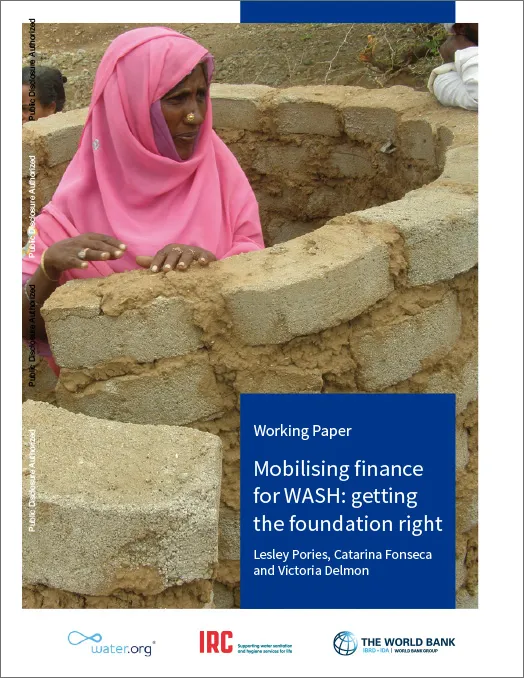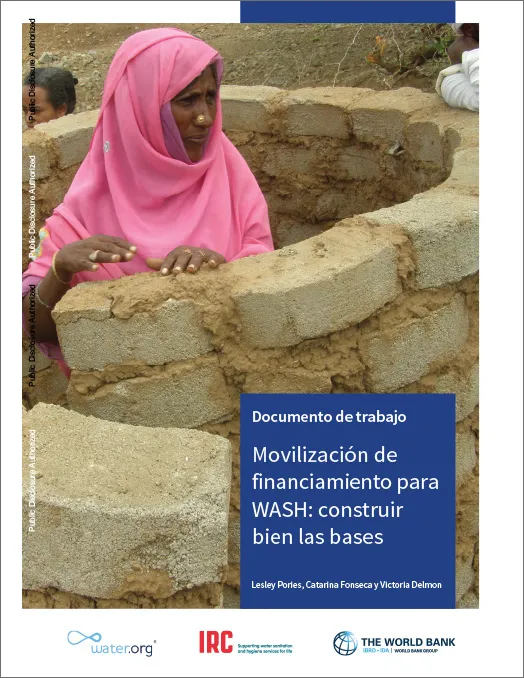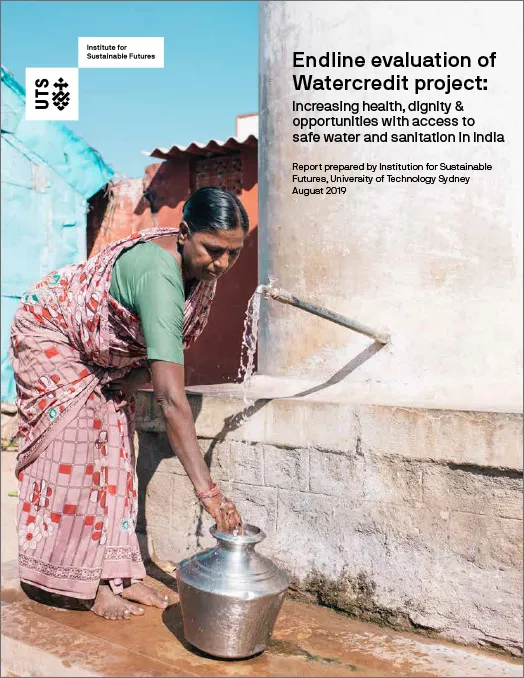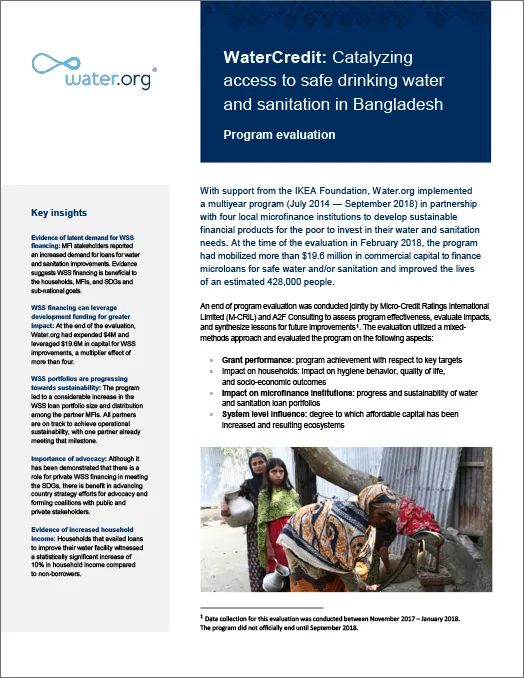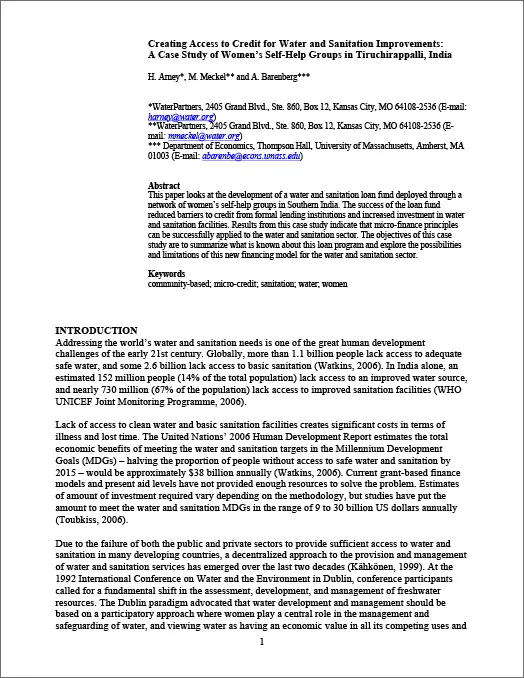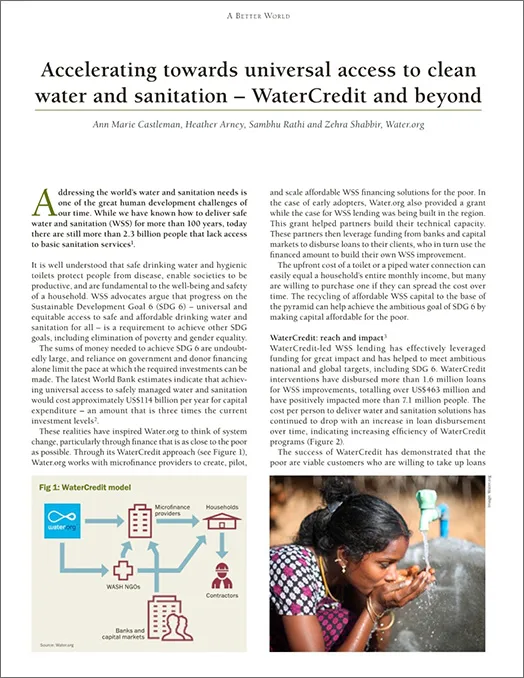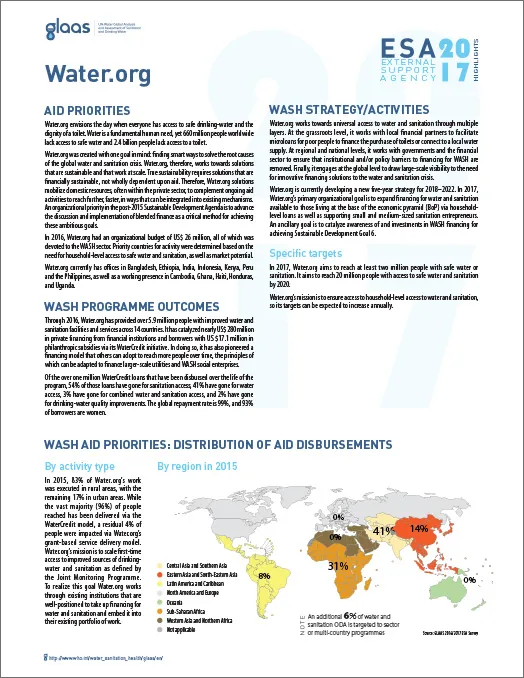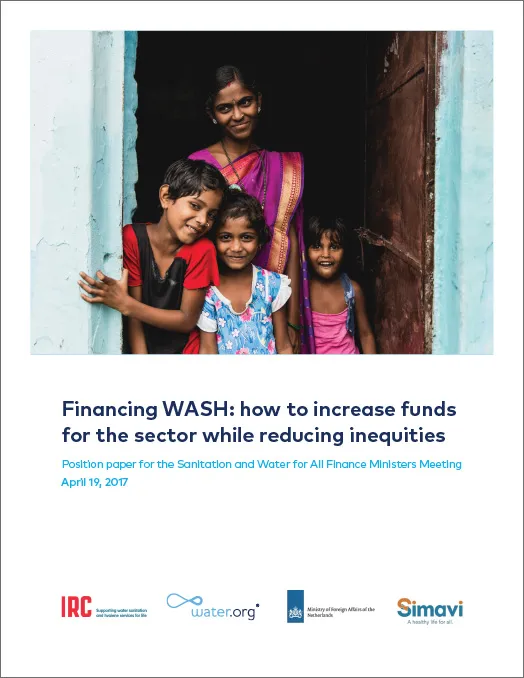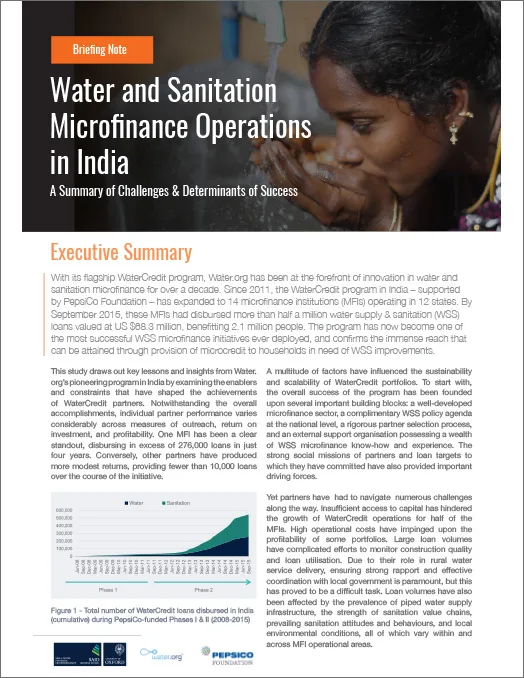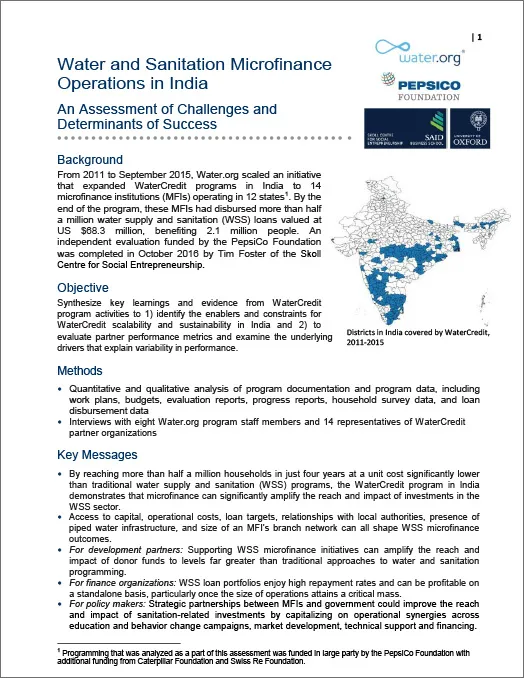Knowledge Library
- Home
- Solutions
- Monitoring & Insights
- Knowledge Library
Financing helps increase access to safe water and sanitation for people living in poverty. Here's the evidence.
Our evidence, research and data supports the use of financing to achieve universal access to safe water and sanitation. We are committed to sharing what we’ve learned, so we can all see a day where everyone, everywhere has access to safe water and a toilet.
Other helpful resources:
Document Type: White paper
Date: March 21, 2019
Movilización de financiamiento para WASH: construir bien las bases
(Spanish) This paper unpacks what is meant by the enabling environment for finance in WASH and presents real examples of how these bottlenecks are being overcome by innovators in the sector.
Document Type: Executive summary
Countries: India
Date: March 1, 2019
Endline evaluation of WaterCredit project: Increasing health, dignity & opportunities with access to safe water and sanitation in India (executive summary)
An assessment of program in India. The assessment drew on two household surveys (baseline and endline), focus group discussions, key informant interviews, loan data and program documentation.
Document Type: Learning brief
Date: Feb. 4, 2019
WaterCredit: Catalyzing access to safe drinking water and sanitation in Bangladesh
This is an evaluation of a multiyear program in Bangladesh.
Document Type: White paper
Countries: India
Date: June 1, 2018
Creating access to credit for water and sanitation improvements: A case study of women’s self-help groups in Tiruchirappalli, India
This paper looks at the development of a water and sanitation loan fund deployed through a network of women’s self-help groups in Southern India. Results from this case study indicate that micro-finance principles can be successfully applied to the water and sanitation sector.
Document Type: White paper
Date: March 23, 2018
Accelerating towards universal access to clean water and sanitation: WaterCredit and beyond
A chapter written for "A Better World- Volume 3", outlining the WaterCredit model and its impacts to date, and its key lessons and challenges.
Document Type: Report
Date: May 12, 2017
GLAAS external support agency - Water.org highlight (2016)
The UN-Water Global Analysis and Assessment of Sanitation and Drinking Water Report included a featured highlight of Water.org and its impact.
Document Type: Position paper
Date: April 19, 2017
Financing WASH: How to increase funds for the sector while reducing inequities
This position paper addresses three key issues that receive limited attention in the WASH sector discussions on finance:
- Lack of finance for strengthening the enabling environment
- Untapped use of micro and blended finance
- Inequities in allocation of finance in the sector
Document Type: Learning brief
Countries: India
Date: Oct. 31, 2016
Water and sanitation microfinance operations in India: A summary of challenges and determinants of success (briefing note)
High level findings from the program in India from 2011-2015 under the PepsiCo 2 grant. This study draws out key lessons and insights from Water.org’s pioneering program in India by examining the enablers and constraints that have shaped the achievements of WaterCredit partners.
Document Type: Executive summary
Countries: India
Date: Oct. 31, 2016
Water and sanitation microfinance operations in India: An assessment of challenges and determinants of success
Findings from the Evaluation of the 2011-2015 Pepsi program in India.
